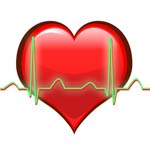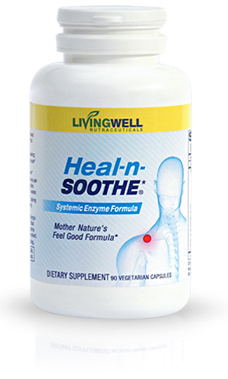 Nearly 1 million Americans have a heart attack each year. This occurs when blood flow to a part of your heart becomes blocked, typically by a blood clot. Blockage is more likely to occur if you have a buildup of plaque, fat or cholesterol in your arteries, causing them to become thicker and harder.
Nearly 1 million Americans have a heart attack each year. This occurs when blood flow to a part of your heart becomes blocked, typically by a blood clot. Blockage is more likely to occur if you have a buildup of plaque, fat or cholesterol in your arteries, causing them to become thicker and harder.
The plaque can break open, allowing a blood clot to form and block blood flow. The longer the blockage remains, the more damage that will occur, but as soon as the heart attack occurs, the heart muscle supplied by the blocked artery will begin to die.[i] Getting help immediately is therefore crucial, as heart attack treatment works best when it happens right after the first symptoms occur.
Getting quick medical care when you’re having a heart attack can save your life and limit heart damage, but contrary to popular belief you might not know when a heart attack is occurring.
While some heart attacks come on suddenly and intensely, not all heart attack victims have sharp chest pain and fall to the floor while clutching their chests — the way it’s portrayed in the movies. Many signs of a heart attack are much less obvious, and for some, women in particular, symptoms may begin a month or more before the heart attack occurs.
For instance, most women experience prodromal symptoms more than a month before having a heart attack, with the most common early symptoms being unusual fatigue, sleep disturbance and shortness of breath.[ii]
7 Heart Attack Signs: What Happens Right Before and During a Heart Attack?
The following symptoms are among the most common warning signs in both men and women.[iii] If you experience any of them, get help immediately (within minutes … don’t wait hours to go to the ER). Some people only have a few mild symptoms even though they’ve had a heart attack, so if in doubt get checked out!
- Chest pain or discomfort: This could be sharp, intense pain or it might be mild. It could feel like pressure, squeezing, fullness or even heartburn or indigestion. It generally lasts more than a few minutes, but it could even go away and then come back.
- Upper body discomfort: You may feel pain in one or both arms, your back, shoulders, neck, jaw or upper stomach (above your belly button).
- Shortness of breath, even if you’re resting or only minimally physically active
- Breaking out into a cold sweat
- Feeling unusually fatigued or weak (especially common in women)
- Nausea and vomiting
- Lightheadedness or sudden dizziness
Fight Inflammation to Lower Your Heart Attack Risk
It’s widely known that elevated levels of C-reactive protein (CRP), a marker of inflammation in your body, are associated with an increased risk of heart disease. But inflammation may also promote the formation of fatty plaques in your arteries, increasing your heart attack risk. According to the American Heart Association (AHA):[iv]
“Think about a splinter in your finger or an abscess on a tooth,” said Donna Arnett, Ph.D., chair and professor of epidemiology at the School of Public Health at the University of Alabama at Birmingham and president of the American Heart Association. “Our body launches an attack with our white blood cells and chemicals that results in redness and swelling to kill the bacteria or rid the body of the intruder.”
Similarly, for the cardiovascular system, risk factors like cigarette smoking, high blood pressure and LDL (bad) cholesterol can “injure” the heart [leading to inflammation]. In turn, atherosclerosis, the buildup of fatty deposits in the inner walls of arteries, can develop. This narrows the arteries and increases the risk they’ll become blocked.”
Perhaps not coincidentally, many of the risk factors for chronic inflammation are one in the same as those that increase your risk of heart disease and heart attack, namely poor diet, inactivity, excess alcohol, cigarette smoking, excessive stress and other unhealthy lifestyle choices.
Because of this, a comprehensive anti-inflammatory diet, consisting of inflammation-fighting food, drinks and herbal supplements — is an invaluable tool to help keep this pervasive health threat at bay.
 Proteolytic enzymes also have an unsurpassed ability to fight chronic inflammation and underlying pain, operating on a “lock-and-key” basis, which means they can recognize good prostaglandins from bad prostaglandins (prostaglandins are hormone-like substances involved in inflammation).
Proteolytic enzymes also have an unsurpassed ability to fight chronic inflammation and underlying pain, operating on a “lock-and-key” basis, which means they can recognize good prostaglandins from bad prostaglandins (prostaglandins are hormone-like substances involved in inflammation).
When proteolytic enzymes’ teeth fit into a ‘bad’ prostaglandin that’s already run its course and has no more use, they dispose of it to let the GOOD prostaglandin come in and get rid of the pain. Plus, these enzymes work throughout your entire body to help it fight inflammation … dissolve scar tissue … cleanse and thin your blood … even boost cardiovascular, respiratory and immune function. Proteolytic enzymes are naturally produced in your pancreas, but your natural production declines with age; these inflammation-busters become largely depleted as you hit 40 and over.
Fortunately, there’s Heal-n-Soothe, the best systemic enzyme formula to replenish your body’s supply of vital enzymes. Heal-n-Soothe®” not only gives you the healing power of proteolytic enzymes in a convenient capsule but it also goes where no other proteolytic supplement has or will with 12 additional proven anti-inflammatory ingredients.
If you want to learn more, here are 7 most essential tips to prevent heart disease (and heart attacks) with lifestyle choices.

